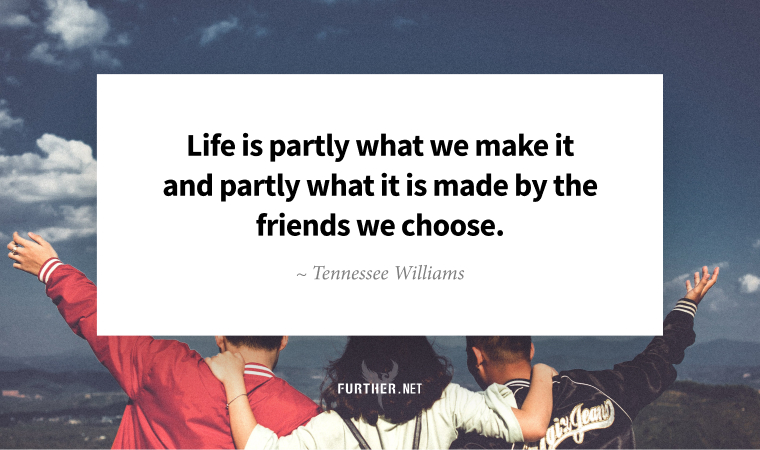
Great news for longevity seekers: the New York Times has once again affirmed that there’s no need to biohack your way to a longer life span and healthspan with their seven evidence-backed secrets to longevity. Unsurprisingly, the list includes moving daily, eating primarily plant-based foods, not drinking (much) or smoking (at all), managing chronic conditions, prioritizing rest, and having a positive mindset.
As a Further reader, you’re already thinking about these things and are likely making informed choices all the time. But chances are the seventh key to longevity — your relationships — don’t get the same scrutiny.
Is there an energy vampire or “chaotic friend” in your life? If so, it’s time to be your own BFF and consider making changes.
When “Good” Friends Suck
There’s plenty of persuasive research that shows the importance of friendship for your health and well-being. Witness the landmark Harvard Study of Adult Development that spans more than 80 years and its compelling core finding:
Close relationships, more than money or fame, are what keep people happy throughout their lives, the study revealed. Those ties protect people from life’s discontents, help to delay mental and physical decline, and are better predictors of long and happy lives than social class, IQ, or even genes.
But what if some of your close relationships aren’t so healthy? Research shows friends you’re ambivalent about can have negative health impacts, like increasing your anxiety and blood pressure while draining your emotional reserves. While setting better boundaries can help, you might need to rethink those relationships completely.
It’s Time for a Buddy Check
Start by doing an audit of your friendships. Therapist Nedra Glover Tawwab, author of Set Boundaries, Find Peace, recommends considering the good (i.e., people who look forward to being with and who make you feel happy and heard), the bad (i.e., those whom you drag your feet in responding to or blow off entirely), and the ugly (i.e., people who make you feel annoyed, upset, or exhausted to a point where you need a nap or Silkwood scrub after seeing them).
While those who energize you are clearly keepers, the rest deserve deeper consideration. According to psychologist Alexandra Solomon:
If you’ve discovered a few energy vampires — not a clinical term, by the way — you’ll need to determine whether or not those friendships are worth keeping.
Some you’ll decide to let go of, while others may be deserving of preserving. In those cases, be strategic: you can find ways to be healthier in those relationships, like focusing on the positives and choosing activities that minimize frustrating conversations and optimize enjoyment.
Finally, prioritize time with those who fill you up. Schedule visits, real and remote, as often as possible. That extra effort is the sign of a true friend.
Identify Your ‘Energy Vampires’ and ‘Chaotic Friends’ (New York Times, gift article)
